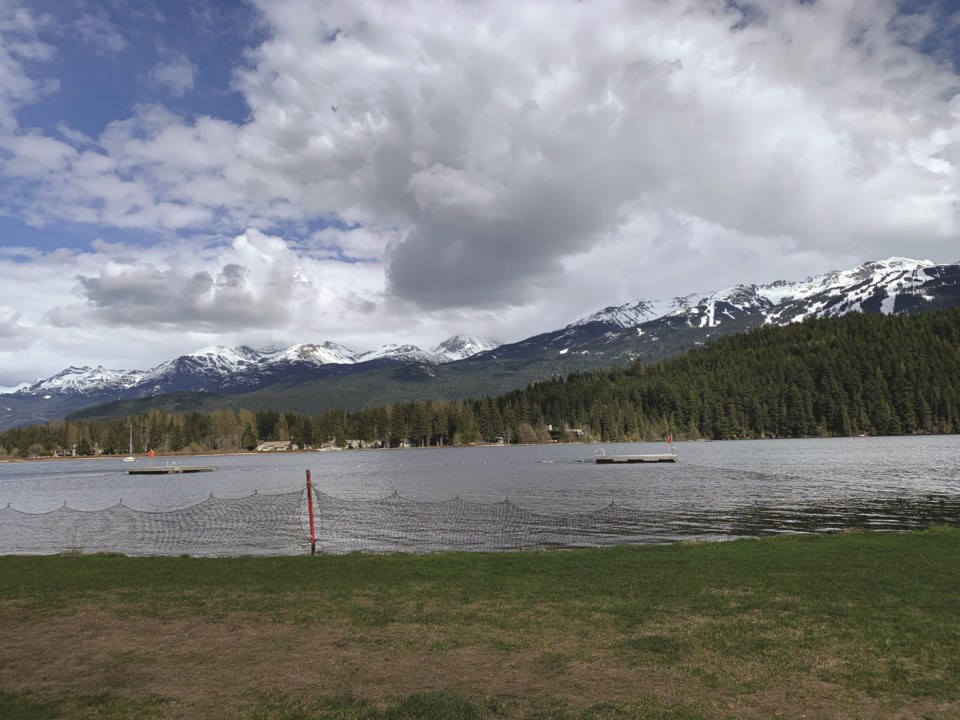Late summer might just be the perfect time for the Whistler Lakes Conservation Association to invite people to attend the LakeKeepers program, slated to run next month.
After all, Whistlerites have just spent the last two months lounging by, swimming in, and paddling on the resort’s many picturesque lakes.
“Being close to water or being on water is just one of those human attractions,” said Rick Nordin, a limnologist (someone who studies fresh water systems) and director of the BC Lake Stewardship Society, the group that runs the LakeKeepers program. “I think water has a huge aesthetic appeal to people.”
The upcoming one-and-a-half-day training course—running on Sept. 17 and 18—will train anyone with a passion for lakes how to understand lake ecology and health and then bring them on to Alta Lake for hands-on training with sampling equipment like dissolved oxygen, temperature meters, and water, biological and sediment samplers.
A scientific background is not required, said Nordin, who was the Provincial Limnologist for the B.C. Ministry of Environment for 29 years and a professor at the University of Victoria for four decades.
“There are some things you have to know, but my experience has been if people are shown how to do something and how to do it correctly and what to watch for, they do a very good job because they care,” he said.
Launched in 2009, the LakeKeepers program has made a concrete difference protecting lakes across the province.
One example: citizen scientists trained through the program were taking samples from a lake near Victoria after concerns that houses with faulty septic tanks could be contaminating the lake.
“The program found there was a problem,” Nordin said. “It was followed up to the point that they located where the problem septic tanks were and fixed them.”
There are myriad issues that could impact the health of a lake.
“Every lake has a different kind of problem … Some lakes have problems with aquatic plants causing problems at beaches or boat launches, logging, agriculture, septic tanks, just general development in the watershed. Whenever you’re cutting down the forest and building roads, you get an issue,” Nordin said.
In Whistler, that issue is likely development, he added.
“The population of Whistler has grown tremendously in the last 50 years. In general, that’s perceived as being the issue, and there are specific small issues as well,” he said.
“The concern is preservation of the present water quality of the lakes. People just want to make sure that they don’t deteriorate.”
After citizen scientists collect the samples as part of the program, they’re sent to a lab in Vancouver for analysis. Then the data goes to the sampler, as well as the group they’re part of—in this instance, the Whistler Lakes Conservation Association—and potentially the Ministry of the Environment. The data is vetted and verified, then posted on the ministry database with copies sent to stewardship groups. The information is also part of data shared in the BC Lakes Stewardship Society’s reports.
“We don’t need people with a technical background,” Nordin said. “Some of the best volunteers I’ve met are people like carpenters or accountants or just people who have some curiosity and who are very organized. The only prerequisite is interest.”
The LakeKeepers workshop will run on Saturday, Sept. 17 from 9 a.m. until 4 p.m. with a classroom session at The Point Artist-Run Centre, and on Sunday, Sept. 18 from 9:30 a.m. until 12:30 p.m. for a field session on Alta Lake. Lunch and refreshments will be provided both days.
The cost is $25 per person or free with the purchase of a membership to the Whistler Lakes Conservation Association. Register by Sept. 2 here.




